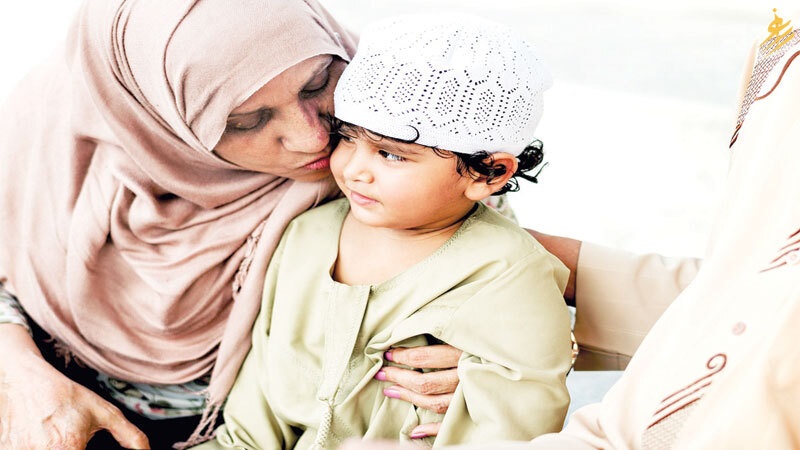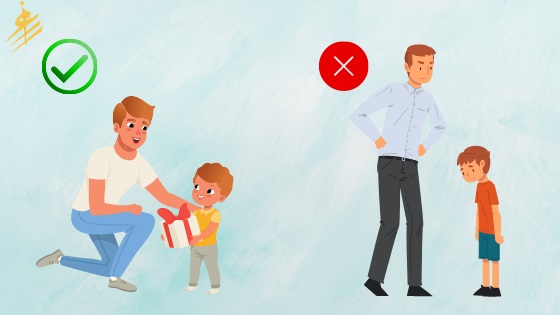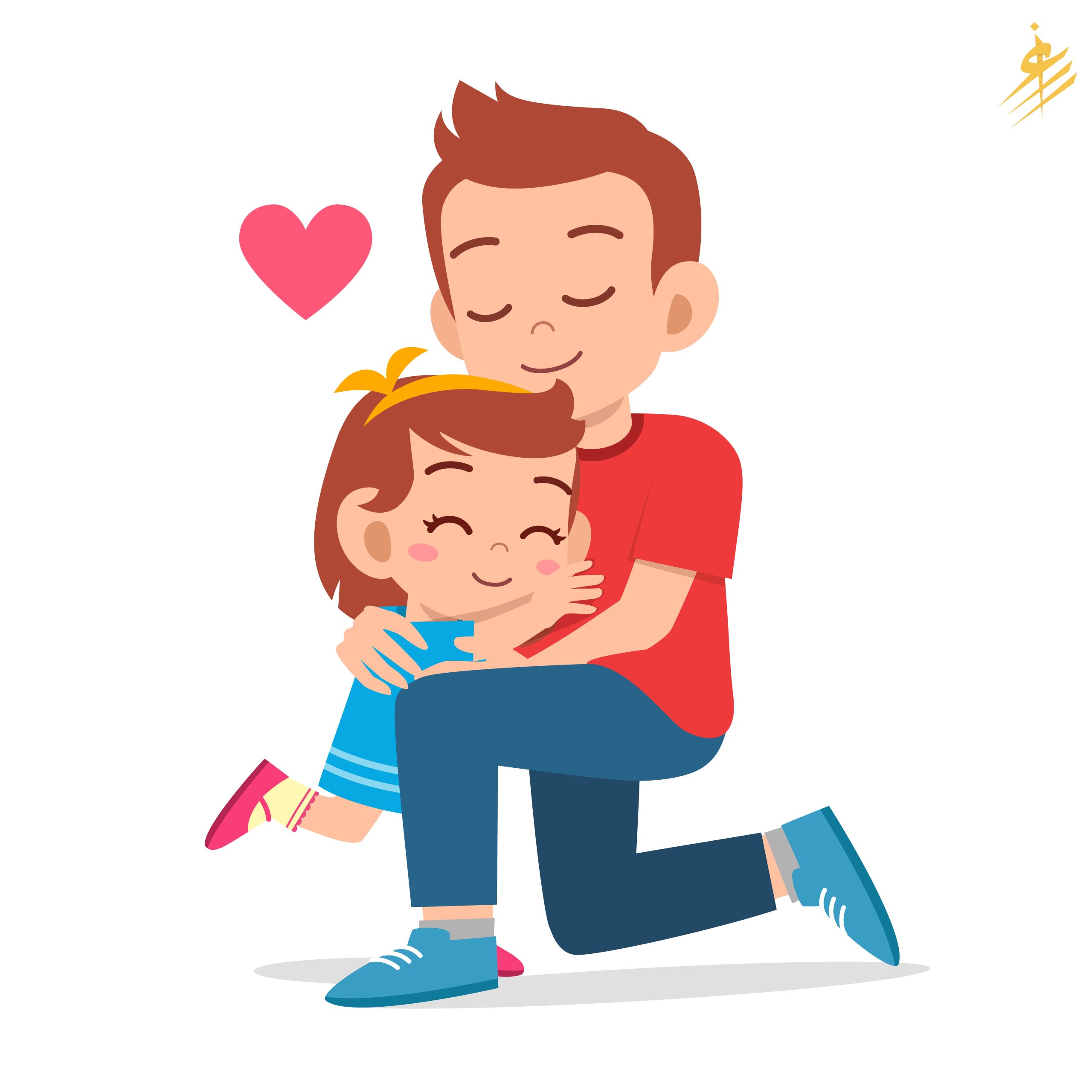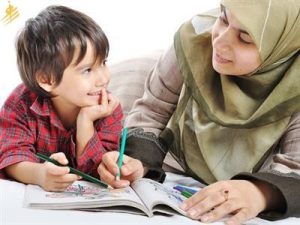A child who is subjected to some kind of negative criticism is always greatly affected, his self-confidence and interaction with society weakens, which makes him have a weak personality when he grows up, it may reach a stage that is difficult to control in the future, we will explain in this article the harms of permanent negative criticism on the child and its impact on his life and his dealings with the society in which he lives, as well as developing solutions to these problems and providing some advice on how to deal with the child in order to become a successful person in society and stay away from any Incorrect behavior.
The harms of permanent negative criticism on the child
No one denies that the damages of permanent negative criticism on the child are many and serious, it is possible that their results will not appear at the same time and may extend to a long time, which increases the risk even more and may reach a difficult stage that cannot be treated, these damages are as follows:
- Negatively affect relationships.
- Withdrawing from colleagues in society and being ashamed of them.
- The formation of the child’s personality is wrong.
- Poor self-confidence of the child.
- Increase emotional wounds deeper.
- Increased psychological stress of the child.
- The child’s feeling of inferiority.
- Poor child achievement.
- Increase the style of apathy in a child.
Negatively affecting relationships

- One of the most difficult harms of permanent negative criticism on the child, which the individual feels with the intensity of these criticisms as his relationships are negatively affected in society.
- Too much criticism leads to increased doubts about the feelings that his parents give him.
- As the child gets older, this feeling increases within him, which can lead to him avoiding establishing strong emotional relationships.
- The child may feel a loss of confidence in any feelings from anyone close to him and may even want to establish new relationships outside the family and forget about and respect for the family.
- The child then begins to be free from any special care for his parents, tends to isolate himself in his home or the place where he is, and moves away from any personal relationship.
- This distance from the world may lead the child to walk in bad social paths and may develop difficult and deep mental illnesses that may require acute intervention in the future.
Withdrawing from colleagues in society and being ashamed of them
- Distance from colleagues and shyness from them is one of the harms of permanent negative criticism of the child, as he becomes fully convinced of the existence of a defect in his personality, which makes him reach the stage of shame of himself.
- This leads to the child’s desire to stay away from any social situation, and he is afraid to express any thoughts or feelings that exist inside him.
- It even comes to the child that he begins to be greatly afraid of any good step he wishes to take in order to improve his situation and retracts it.
- Psychology refers to the behavior of this individual and calls it a “false society”, because it expresses a type of behavior that appears in staying away from any interaction in society, as well as his lack of courage in making any plan for personal development and improvement.
- Psychologists focus heavily on understanding this type of behavior that negatively affects the progress of a child’s personality, and this prompts them to provide full support in order to help this child overcome this bad behavior.
Wrong formation of the child’s personality
- Psychologists in the world confirm that the child’s mind consists of two layers in the first place, namely the unconscious layer and the conscious class and the conscious class affects to play the most important role in shaping the child’s personality, especially in the pre-six-year-old stage.
- The unconscious class has some effects that are also evident at this stage and criticism is the most important element that merges into the mind of the individual and enters the child as criticism is part of his own experiences, the mind absorbs it in a way that affects his understanding of the world around him.
- Absorbing the negative effects that result from this criticism leads the child to build foundations for personal dealing with any negative experience, which causes the child’s personality to be formed wrongly and that is one of the most common harms of permanent negative criticism of the child.
Poor self-confidence of the child
- One of the most common harms of a child’s constant negative criticism is his low self-confidence, especially in light of harsh criticism in childhood.
- This effect is an unpredictable blow as the child begins to feel a gradual loss of personal worth.
- In light of many attempts of the child to overcome these blows and his desire to restore confidence in himself, but is offset by an increase in the harmful effect.
- Over time, fixing these negatives becomes difficult and even impossible, causing more complexity for the child, especially in his childhood and affecting him when he grows up.
Increase emotional wounds more deeply
- One of the harms of constant negative criticism of a child is that his emotional wounds have increased significantly, especially while exceeding criticism to a large extent.
- Emotional comments are one of the most difficult things that have an impact on a child’s mind, and this effect may continue with him throughout his life and his emotional wounds increase deeper.
- The wounds begin to appear more at the beginning of his entry into new relationships, as the child always finds barriers to any new attempt in the field of social relations.
- The fear of repeating negative experiences always stands in the way of his interaction with society.

Increased stress on the child
- The psychological pressure of children increases and the level of stress increases due to negative criticism, as these effects are considered one of the most difficult damages of permanent negative criticism of the child, which makes him live in an unsafe environment.
- In the long run, the child feels difficulties in his life, whether depression, difficulty breathing or fear of any confrontation.
- Many doctors interpret this condition as permanent negative criticism as the main cause of stress, as it negatively affects the body’s cortisol system as well as adrenaline, which increases the doses of anxiety, stress and depression.
The child’s feeling of inferiority
- The child may feel inferior as a result of negative criticism of him continuously, especially from parents, and it is considered one of the most widespread harms of permanent negative criticism of the child, as it reaches a lack of confidence in his skills and abilities.
- Over time, the problem increases and errors abound as a result, and the child feels significantly inferior compared to any other child who does not face negative criticism.
- Psychologists always advise to do moral support for the child and increase his self-confidence in order to overcome the problems facing him.
Poor child achievement
- One of the most serious harms of permanent negative criticism of the child, which affects his educational level due to the poor achievement process in school due to his lack of self-confidence and high psychological pressure.
- This leads the child to constantly think about this criticism, which affects his overall performance in school, as well as his academic achievement.
- It may even lead to the child failing some subjects and affect his future life.
- Doctors advise in this situation the need to deal quickly and provide some dialogues with specialists in this matter, especially teachers, in order to restore the child’s skills and ability to achieve well.
Increased apathy style
- One of the harms of constant negative criticism of a child is that the child reaches a strange state of apathy and does not pay attention to anything over time.
- The child turns into a being who lives only on life with only breathing and is indifferent to anything that goes on around him, which affects his personality in society.
- This also causes the child to reduce his creative ability and distance him from any means of self-development, as he becomes a worthless person in society.
How to build up the own-self in a child
If parents want to build oneself in the child, some rules and steps must be followed that help in the formation of his personality and keep him away from any failure in his life, which avoids the child the damage of permanent negative criticism of the child, and this can be achieved by:
- Expressing to the child their love for him, and this may be in several ways, including providing words and emotions and making the child always feel that he deserves great love, which increases his positives in society, especially that when he does not receive this love, he feels weak self-confidence.
- Providing a safe society for the child and this safety means all kinds of safety, whether emotional, physical or nutritional, because parents are considered a refuge for their children in anything that happens to them.
- Listening to children and knowing what they like and dislike, as parents’ acceptance of their children increases their level of self-acceptance and increases their self-confidence significantly.
- Treating children with politeness, as there is a language spoken with children that is different from adults and once parents respect their children, it makes them feel respected within themselves and in front of others.
- Encourage the child to any right behavior he does and must be understood in case of any wrong behavior. Praise children, this method is one of the best recommended by doctors and in the case of criticism is calm, educational and impassive.

Phrases to strengthen the child’s self-confidence
There are some phrases recommended by psychologists in order to strengthen the child’s self-confidence and his parents or those close to him provide him by knowing the harms of permanent negative criticism of the child, and it is clear in the following:
- “My little one, you can do great things and everyone knows your skills and abilities”, where parents’ belief in their child’s ability to do the impossible is the incentive for him to increase his abilities and achievements and this is done by offering him a lot of love to do more.
- “Make everyone look at you and look forward to your achievements”, as the child always needs motivation and encouragement especially when facing any challenge.
- “My dear child, I chose you to support me, I am proud of you” This sentence may make the child rejoice inside him with all his heart, as his parents are seen at this time as role models and he is their complement.
- “You should know that your victory will make us all victorious” and this sentence suggests to the child the extent of integration and interdependence between his family members, which makes him do what he can and more so that everyone rejoices.
You can also read about: Building the child’s personality on faith superiority.
Ways to deal with parents who offer criticism to their children
There are some ways to deal with parents who always offer criticism to their children, and they must at this time go to doctors specialized in this matter and experienced so as not to cause their children problems, and these methods are as follows:
- Drawing the diagram: This method begins with determining the type of parents who criticize their children, whether they are in control or stubborn that narcissists and then it is possible to know how to criticize their children according to the principle of self-building, where work must be done to change the way parents view their children because they may not know that what they do affects the child and must be made aware of this.
- Start discussing with them: Determine the foundations of the relationship between them and the child, especially when the child looks at them and finds that they want to maintain the relationship with him and will talk to them with all his heart.
- Family therapy: This is done in some difficult cases, where some experienced parties can be introduced and can educate children and parents in order to strengthen the family relationship between them.
- Talking positively with the child: When the child is criticized, he is always afraid of making mistakes and this is a negative thing that makes him always afraid of coming on anything, even if positive.
- Forming healthy relationships for the child: whether with his friends or family, which positively affect his life in the future.
Tips in raising children

There are some tips provided by doctors in psychology to parents in order to raise children in a positive and sound education to return them with good results, especially in light of what we have explained of the harms of permanent negative criticism of the child and these tips are as follows:
- Disciplining the child positively by rewarding him and avoiding any means of beating or nervousness that may lead to the opposite result.
- Listen to the child in order to learn about everything he feels and offer some alternatives in the situations he lives.
- Show affection for the child, love him and spend more time with him.
- Let the child present his creations even if the mistake is repeated without criticism or fear.
- Describe the behavior that the child does well, an example of which is not to tell the child that you are bad but to tell him that this behavior is not good.
- Invest some time with the child, whether actually or in words and implement this on the ground and not only talk.
Patterns of raising the child and their impact on him
Many studies have been conducted by doctors in psychology on many children and some patterns of upbringing have been reached out, which are as follows:
- Permissive style: Being lenient with a child may lead to a lack of ability to organize his life, which makes him perform poorly in school and cannot control his problems.
- Authoritarian style: This pattern leads to the child being obedient and highly competent, but he does not feel as happy as other patterns because he feels not adapted to society and loses his self-esteem.
- Caring-off style: This pattern is the worst lifestyle, in which parents meet all the needs of the child but do not provide him with support, which makes the child unable to control himself and his efficiency is less compared to his colleagues and peers.
- Reliable style: It is the pattern that is carried out on the foundations, rules and principles that are applied to children in order to discipline them and not punish them, which makes the child respond to the wishes of parents without the need for nervousness or the application of improper methods, where the child is dealt with democratically and dialogue is carried out with him in order to reach a positive result.
In this article, we explained the harms of permanent negative criticism of the child, which makes him do undesirable things and weaken his personality, and the matter may reach a tragic end and the loss of the child in the end, and parents must know that the right way to evaluate the child is to provide love and attention to him and get closer to him and know what he likes and dislikes and not permanent criticism negatively that may direct the child to the abyss quickly.
You can download jeras app from here, for more social, religious and educational articles.






